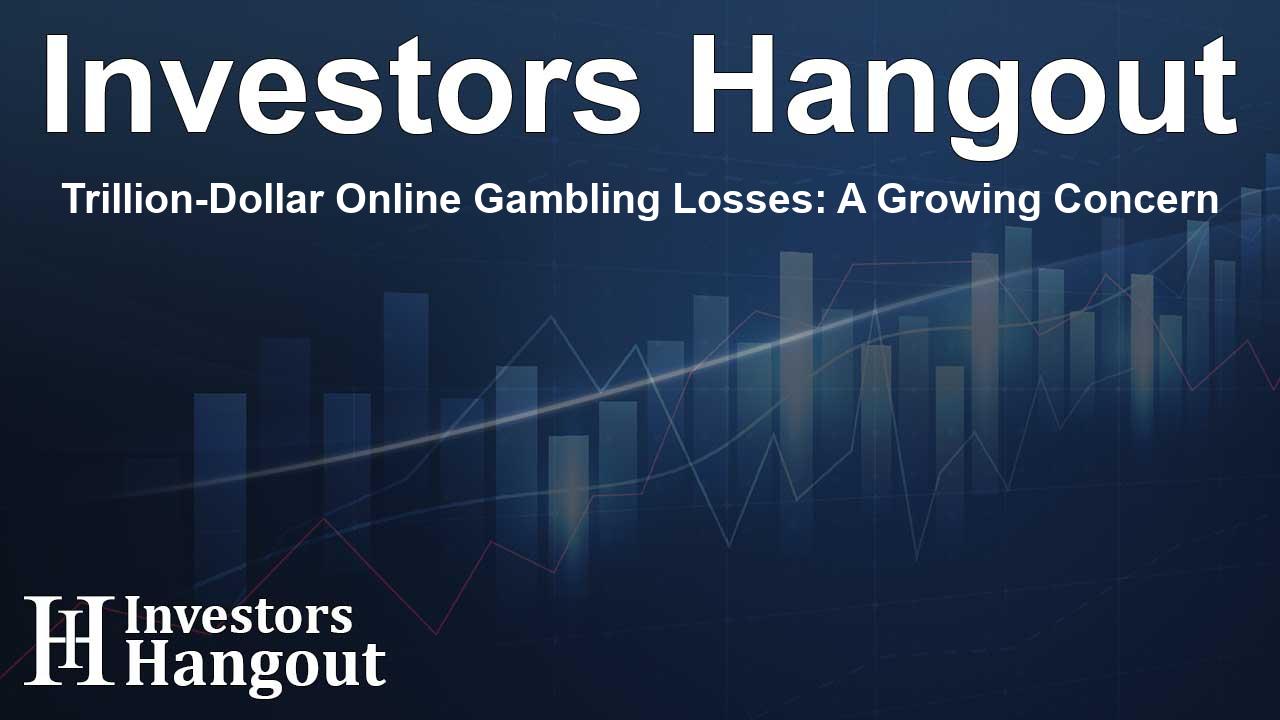Trillion-Dollar Online Gambling Losses: A Growing Concern

The Impact of Online Gambling Losses
Recent estimates indicate that the global online gambling market is poised to reach unprecedented heights, with projections suggesting it could surpass $700 billion in annual revenue by 2028. However, within this booming industry, a darker reality lurks—particularly in terms of illegal online gambling in the U.S., which is said to reach over $40 billion annually. This alarming growth translates to potential losses for consumers and the wider economy, which are projected to exceed $1 trillion by the close of the decade.
Derek Webb's Insights on Gambling's Economic Impact
Derek Webb, a notable figure in the Campaign for Fairer Gambling, has drawn significant attention to the economic ramifications facing U.S. consumers. Webb highlights the troubling trajectory concerning online gambling, underscoring the rising vulnerability among consumers who may find themselves trapped in cycles of addiction.
The Duty of Care Principle in Gambling
A key legal consideration in this arena is the concept of 'Duty of Care,' which refers to the responsibility that gambling operators have to their clients. This principle has not been widely enforced, but incidents of litigation, including against major players like DraftKings, spotlight increasing scrutiny over how gambling operators market their services.
Attracting Gamblers: Marketing Strategies and Risks
Operators of online gambling platforms frequently employ enticing sign-up bonuses and ongoing promotional offers to attract a diverse clientele. While such strategies are designed to engage newcomers, they can inadvertently escalate the risks faced by casual gamblers, pushing them into more high-stakes behavior. Moreover, research indicates a correlation between increased gambling consumption and heightened individual harm, especially when both legal and illegal gambling avenues converge.
The WHO's Call for Regulatory Measures
In light of these developments, the World Health Organization (WHO) has advocated for comprehensive public health policies to mitigate gambling-related harm. Among their recommendations, the WHO urges the cessation of gambling advertising and promotional activities, particularly those targeting sports and cultural events, in a bid to create a safer gambling environment for all.
State Enforcement and Regulatory Challenges
Despite some state attorneys general taking steps to curb illegal gambling activity—such as sending cease-and-desist letters to operators like Bovada—consistent enforcement remains a major challenge. The lack of rigorous federal oversight allows for a cycle where illegal operators often emerge in place of those exiting a state, complicating efforts to protect consumers.
Legislative Concerns in Gambling Regulation
Webb warns that states offering tax breaks related to gambling must carefully consider the legal implications they may face, emphasizing that the burden of harm prevention should not fall solely on individuals. He suggests that promoting legalization as a panacea for gambling addiction or as a means to eliminate illegal betting may ultimately prove misguided.
About the Campaign for Fairer Gambling
The Campaign for Fairer Gambling (CFG) is dedicated to advocating for responsible gambling practices. It operates as an independent reform organization with a focus on providing empirical data and analysis to support regulatory decision-making in both the U.K. and U.S. CFG aims to foster open discussions surrounding gambling policies, ultimately seeking to protect consumers and promote fair practices across the gambling landscape.
Frequently Asked Questions
What are the projections for online gambling losses in the U.S.?
Projections indicate that U.S. online gambling losses could exceed $1 trillion by 2028, primarily due to the growth of the illegal gambling market.
Who is Derek Webb and what is his role?
Derek Webb is the founder of the Campaign for Fairer Gambling, where he emphasizes the need for responsible gambling practices and consumer protection.
What is the Duty of Care in gambling?
The Duty of Care refers to the legal responsibility of gambling operators to prevent harm to their consumers, which has been gaining attention in current litigation.
What recommendations did the WHO make regarding gambling?
The WHO recommends implementing public health policies, including ending gambling advertisements and sponsorships that could influence consumer behavior negatively.
How do online gambling operators attract consumers?
Operators often use bonuses and promotions to draw in customers, but these tactics can lead to increased risk and abuse among vulnerable individuals.
About Investors Hangout
Investors Hangout is a leading online stock forum for financial discussion and learning, offering a wide range of free tools and resources. It draws in traders of all levels, who exchange market knowledge, investigate trading tactics, and keep an eye on industry developments in real time. Featuring financial articles, stock message boards, quotes, charts, company profiles, and live news updates. Through cooperative learning and a wealth of informational resources, it helps users from novices creating their first portfolios to experts honing their techniques. Join Investors Hangout today: https://investorshangout.com/
Disclaimer: The content of this article is solely for general informational purposes only; it does not represent legal, financial, or investment advice. Investors Hangout does not offer financial advice; the author is not a licensed financial advisor. Consult a qualified advisor before making any financial or investment decisions based on this article. The author's interpretation of publicly available data shapes the opinions presented here; as a result, they should not be taken as advice to purchase, sell, or hold any securities mentioned or any other investments. The author does not guarantee the accuracy, completeness, or timeliness of any material, providing it "as is." Information and market conditions may change; past performance is not indicative of future outcomes. If any of the material offered here is inaccurate, please contact us for corrections.